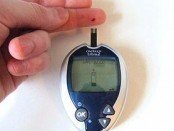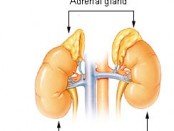Glucose Intolerance (Problems with Blood Glucose Control)
What is glucose intolerance? Glucose intolerance is a broad term encompassing several conditions that leads to abnormally high blood glucose levels (hyperglycemia). It is often confused with impaired glucose tolerance (IGT), one of the conditions listed under the term glucose intolerance. Sometimes glucose intolerance is >> Read More ...








